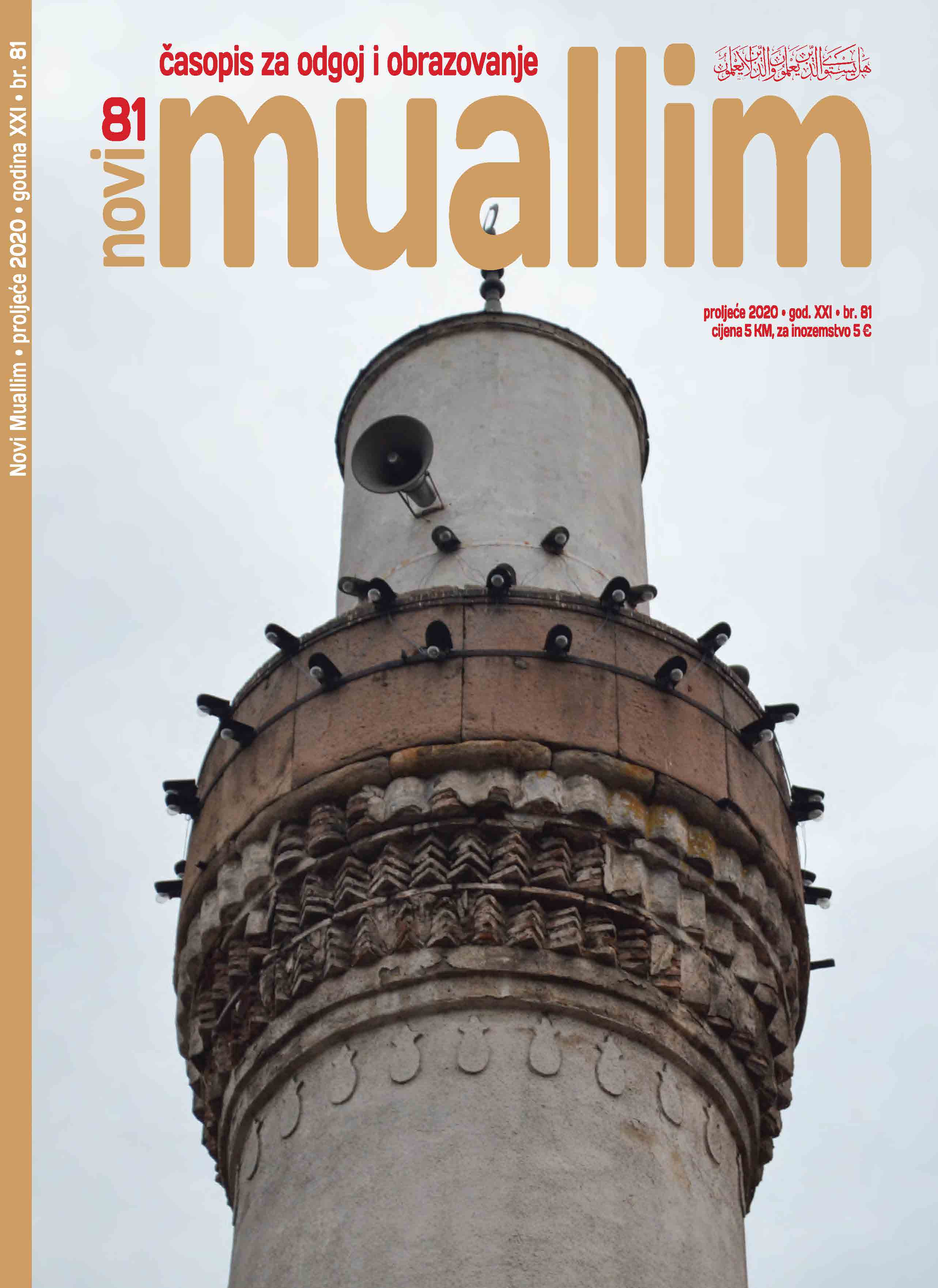THE ORIGIN OF ROMANI PEOPLE AND CUSTOMS RELATED TO DEATH IN MUSLIM ROMA COMMUNITIES OF BIJELJINA AND ZENICA
DOI:
https://doi.org/10.26340/muallim.v21i81.1764Keywords:
customs, death, Zenica, RomaAbstract
UDK 398:28(497.6 Zenica+Bijejin=214.58)
The subject of this article is the origin of Romani people. We here trace the route of their migrations through history and present outlines of the customs related to death in Muslim Roma communities of Bijeljina and Zenica. The aim of the article is to analyse and present customs related to the funerals in Muslim Roma communities of Bijeljina and Zenica by using ethnographic, historiographical, comparative and interview methods. We need to emphasise that due to: lack of written documents regarding the customs of Bosnian and Herzegovinian Roma community, difficulty in obtaining historical documents on customs of the Roma communities of other regions and finally, difficulties in collecting data on details of practicing certain customs with the method of ethnographic research, we
here focused upon characteristic traits of customs related to funerals.
Traditional traits of these customs are presented with the view of alterations therein which took place under the influence of mass communication media or as a result of coexistence with other ethnic groups. The aim of the article is to present, using the interview method, how Muslim Roma community members of these two cities understand the origin and the meaning of these customs and to what extent they are aware of the Muslim aspects of their culture. Are the mentioned customs characteristic exclusively to Roma population or the same were existing,
or perhaps still exist as a part of cultures of Bosniaks, Chroats, Serbs or even other ethnic groups across the World?
Downloads
Published
How to Cite
Issue
Section
License
Naknada:
a. Časopis ne naplaćuje naknadu za obradu članaka (APC) i naknadu za podnošenje članaka.
Autori koji objavljuju u ovom časopisu pristaju na sljedeće uvijete:
- Autori zadržavaju autorska prava i pružaju časopisu pravo prvog objavljivanja, pri čemu će rad jednu godinu po objavljivanju biti podložan licenci Creative Commons imenovanje koja omogućuje drugima da dijele rad uz uvijet navođenja autorstva i izvornog objavljivanja u ovom časopisu.
- Autori mogu izraditi zasebne, ugovorne aranžmane za ne-ekskluzivnu distribuciju rada objavljenog u časopisu (npr. postavljanje u institucionalni repozitorij ili objavljivanje u knjizi), uz navođenje da je rad izvorno objavljen u ovom časopisu.


